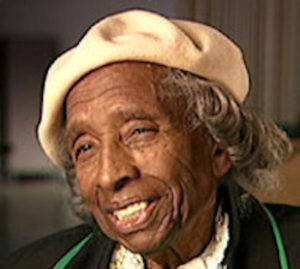
Katie Booth
*Katie Booth was born on this date in 1907. She was a Black biomedical chemist and community activist.
From Gulfport, Mississippi, Booth developed an early passion for chemistry but had access to few resources to pursue her interest. In 1929, Booth was part of the first class of Blacks to graduate from the Gulfport School for Coloreds. Later that year, she moved to Arkadelphia, Arkansas, to work for the Presbyterian Board of Education. She received a scholarship to study at Philander Smith College in Little Rock, Arkansas, where she earned a basic education degree in 1940.
At the beginning of World War II, Booth moved to Chicago to work in the war industry. Booth was married during World War II to Robert Booth. Eight years later, he died from his war injuries. They had no children. She was a chemist at Doeh-Jarvis, a die-casting company. Also, she took classes at the Damen Institute of Technology, where she received a degree in industrial chemistry after the war. From there, Booth worked in the Department of Pharmacology at the Chicago Medical School, researching preventative health measures. She was interested in children's health and prenatal care and also worked on treatments for Sickle Cell Anemia.
In the 1970s, Booth retired from chemistry but remained an active civic leader on Chicago's West Side. Since the 1940s, she served as the West Side YWCA chairperson and held the position until after her professional retirement. Booth was also one of the first members of the Chicago Housing Board's West Side District and served as chairperson of the board of Sears Roebuck for the West Side area. In the 1960s, Booth worked with Operation PUSH and cautioned civil rights leaders against fragmenting following Dr. Martin Luther King, Jr.'s death.
During the 1980s, Booth helped a voter registration drive that led to the election of Harold Washington, Chicago's first Black mayor. In the 1990s, Booth returned home to Magnolia Grove, the subdivision of Gulfport, where she had been an original resident. Staying active into her nineties, Booth worked to expand the Magnolia Grove Community Center and its children's programming. In recognition of her work, the facility was renamed the Katie Patterson Booth Community Center in May 2003. She consistently looked out for her community throughout her life. Few women worked in chemistry then, making Booth a trailblazer in her field. Katie Booth died in April 2005.